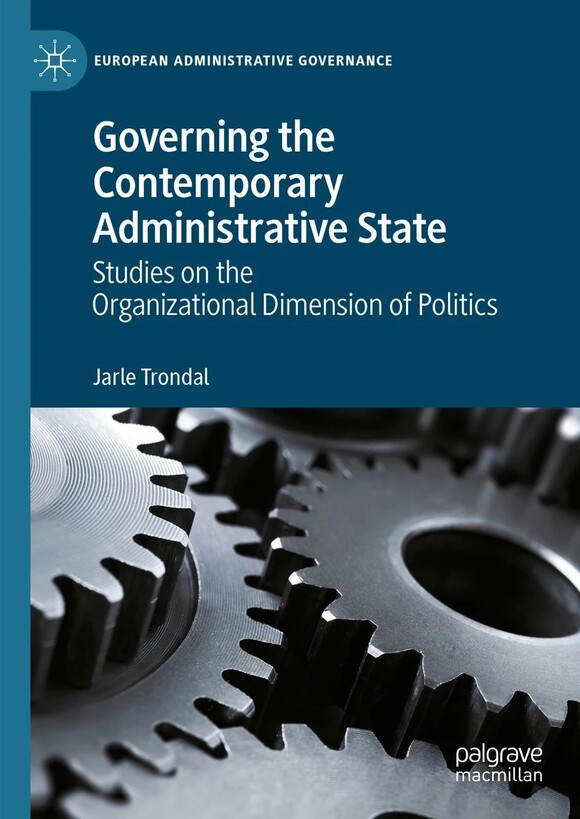“Neither the state nor democracy would function without an efficient bureaucracy,” asserts Jarle Trondal.
Trondal, a political scientist, organisational researcher, and professor in the Department of Political Science and Management at the University of Agder (UiA) and ARENA Centre for European Studies at the University of Oslo, has recently published a new book presenting several studies on the transformation of the administrative state over the past 40 years.

“The role of bureaucracy has evolved but not fundamentally changed during that time. Key factors in this evolution include the partial autonomy of national administration and the European integration of such institutions. National bureaucracy has become supranational and must now collaborate on more levels than before,” Trondal explains.
A bureaucrat in Norway handling labour laws and regulations engages with EU legislation, and not just the Norwegian government, the minister and ministry in Oslo. An increasingly significant partner for bureaucrats in Kristiansand or Trondheim is therefore not in Oslo but in Brussels.
“Norwegian bureaucrats are close to both the national and international levels, particularly the European level. Some of them primarily work with EU laws and regulations, such as those related to the construction of tunnels and buildings,” Trondal adds.
Facts
The book, Governing the Contemporary Administrative State: Studies on the Organizational Dimension of Politics, published by Palgrave Macmillan in 2023, comprises multiple studies exploring how bureaucracy and democracy influence each other. The book is based on extensive data from bureaucracies in Europe, including the EU, EU member states, and Norway. It also draws on data from international bureaucracies such as the OECD, the World Health Organization (WHO), the African Union (AU), and the World Trade Organization (WTO).
Bureaucracy on an international scale
Trondal's new book is rooted in the concept of ‘the administrative state,’ introduced by Dwight Waldo in his 1948 classic work. For Waldo, it was primarily about the role of bureaucracy in a nation-state’s democracy. However, today, various responsibilities and functions have shifted to supranational, regional, and local bureaucratic entities, leading to an increasing number of administrative layers alongside the state.
“For Norway, the primary challenge to our national bureaucracy comes from the European Commission with its forty thousand bureaucrats. Bureaucracy finds itself in a constant balancing act between national laws and policies on the one hand and EU legislation on the other,” Trondal points out.
Challenging perceived conflict
Professor Trondal likes to challenge the ongoing conflict between political science and public administration. He says there is a need for holistic theories and methods that consider both organisational theories and politics when explaining how democracy functions.
“One of the key objectives of my book is to demonstrate how we can perceive them as an integrated whole. We cannot adequately understand or explain political processes and systems without including the organisational dimension,” Trondal emphasises.
Enforcing policies
According to the professor, one of bureaucracy's main tasks is to enforce policies without being political.
“This speaks to the demanding role that bureaucrats grapple with daily. Bureaucrats continually make decisions based on judgment. These decisions must be weighed against the legal framework, interest groups, government policies, and international politics and agreements. Additionally, they must remain faithful to their own expertise and administrative practices in the field,” Trondal explains.
Impartial bureaucracy
He emphasises that an impartial bureaucracy is key to good governance but also stresses that bureaucracy should not be solely politically loyal.
“We safeguard against an overly loyal bureaucracy by appointing individuals based on their expertise rather than their political stance or personal connections. This is why the recent conflict of interest cases in our country are concerning,” Trondal says.
He also refers to the NAV scandal as an example where bureaucracy was too loyal to the Norwegian government's directives and did not give adequate consideration to EU legislation, disregarding international agreements to which Norway had committed itself.
Steady governance
A common thread in the book is bureaucracy's ability to adapt to changing times.
“The administrative state has proven to be beneficial for citizens, even as it has become more international. Bureaucracy functions reliably even in times of turmoil and challenges in governance,” Trondal concludes.
